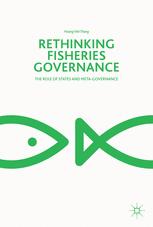

Most ebook files are in PDF format, so you can easily read them using various software such as Foxit Reader or directly on the Google Chrome browser.
Some ebook files are released by publishers in other formats such as .awz, .mobi, .epub, .fb2, etc. You may need to install specific software to read these formats on mobile/PC, such as Calibre.
Please read the tutorial at this link: https://ebookbell.com/faq
We offer FREE conversion to the popular formats you request; however, this may take some time. Therefore, right after payment, please email us, and we will try to provide the service as quickly as possible.
For some exceptional file formats or broken links (if any), please refrain from opening any disputes. Instead, email us first, and we will try to assist within a maximum of 6 hours.
EbookBell Team

4.4
62 reviewsThis book explores how the state can foster collective action by fisher’s communities in fisheries management. It presents a different perspective from Elinor Ostrom’s classic work on the eight institutional conditions that foster collective action in natural resource management and instead emphasizes the role of the state in fisheries co-management, engaging a state-centric notion of ‘meta-governance’. It argues that first, the state is required to foster collective action by fishers; and secondly, that the current fisheries co-management arrangements are state-centric. The study develops these arguments through the analysis of three case studies in Japan, Vietnam and Norway. The author also makes a theoretical contribution to governance literature by developing Ostrom’s ‘society-centric’ framework in a way which makes it more amenable to the analysis of state capacity and government intervention in a comparative context. This book will appeal to students and scholars of global governance, fisheries management, co-management, and crisis management, as well as practitioners of fisheries management.